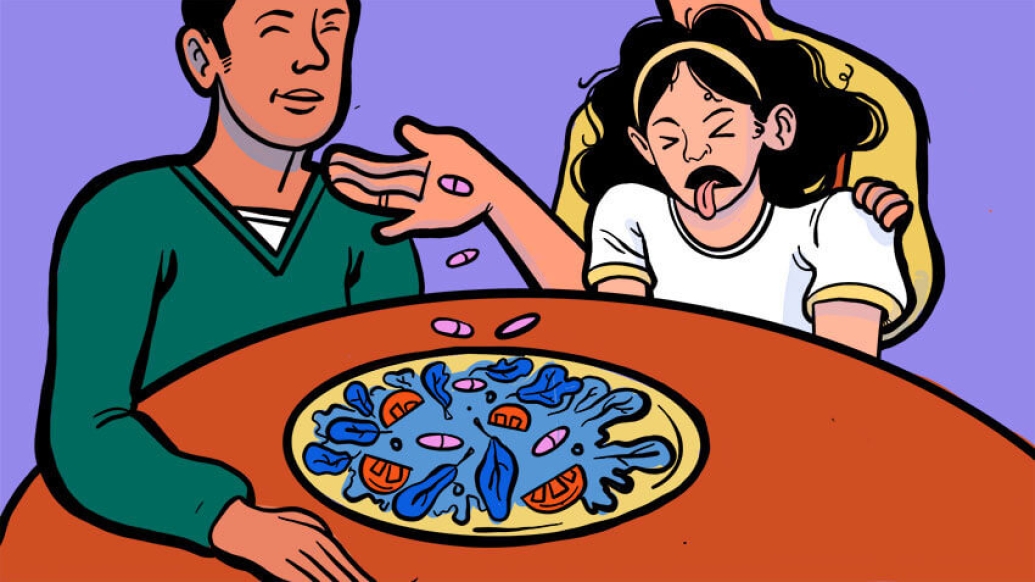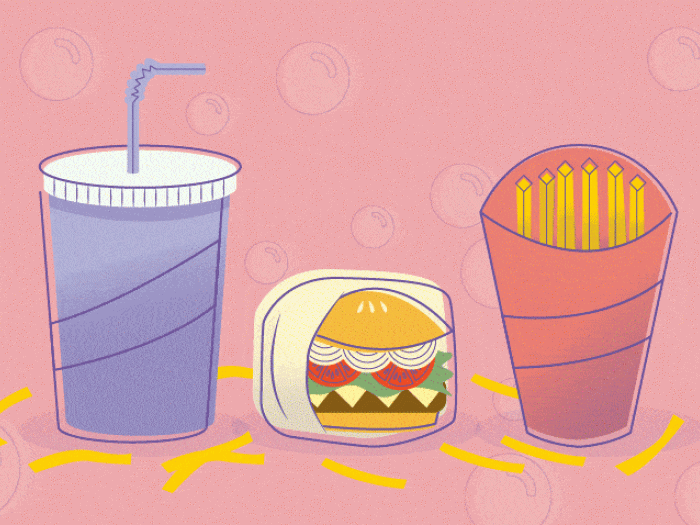3 in 5 parents say it’s hard to get their child to eat a well-balanced diet because of picky eating, not eating enough fruits and vegetables and other reasons.
5:00 AM
Author |

Kids can be stubborn when it comes to eating the healthy foods on their plate.
And now, a new national poll reaffirms that picky eating is a universal parenting challenge.
Over half of parents agree that it's difficult to get their child to eat a well-balanced diet and half say their child regularly takes a supplement, according to the University of Michigan Health C.S. Mott Children's National Poll on Children's Health.
MORE FROM MICHIGAN: Sign up for our weekly newsletter
"A balanced diet helps children get the nutrients they need for healthy growth and development," said Mott Poll co-director Sarah Clark, M.P.H. "An unhealthy diet, on the other hand, can negatively affect short and long-term health outcomes as well as school performance.
"Still, the reality for many parents is that getting children to eat healthy foods isn't always easy. Our poll finds that many turn to dietary supplements as a solution but may not always consult with a health provider."
About a third of parents say their child is a picky eater and a third don't think they eat enough fruits and vegetables. Thirteen percent worry kids aren't getting enough of certain vitamins and minerals while 9% say their child needs more fiber in their diet, according to the nationally representative report based on responses from 1,251 parents with at least one child ages one to ten.
Another potential barrier: cost. Half of parents agreed that it was more expensive to provide their child with a healthy diet.
"We know that fresh, healthy foods can be more expensive than processed or packaged items that are often higher in sodium and added sugars," Clark said.
"This can make it especially frustrating for parents when children waste or refuse to eat healthy foods."
Providers should be diligent about discussing nutrition with families so they understand what a healthy diet should include and are using supplements appropriately.Sarah Clark, M.P.H
Most parents polled have given their child dietary supplements, with over three fourths using multivitamins. Close to half had also provided kids with probiotics, which are live bacteria and yeast taken to help digestion by enhancing the quantity of good microbes in the gut.
More than a fifth have used Omega 3 supplements, fatty acids that support cell growth and brain development.
About a third of parents say their child has tried but does not take supplements regularly. Among parents who have given their child supplements, four in five say they chose products made specifically for children, but only about two in five say they discussed supplement use with their child's health care provider.
Parents considering supplements will likely need to choose from various products and formulations that may claim specific health benefits.
"Dietary supplements are often intended to enhance the amount of vitamins children consume through a regular diet," Clark said. "But parents may not always know whether their child is getting proper nutrition."
"The use of dietary supplements in children is an important health decision to discuss with doctors, but less than half of parents who have given their child a supplement talked to their child's health provider."
It's unclear, she says, if this lack of consultation is the result of providers not asking about the child's nutrition, parents not thinking supplement use warrants professional advice or another reason.
Parents in lower-income households were also less likely to talk about supplement use with their child's health care provider, compared to higher-income parents, according to the report.
"Providers should be diligent about discussing nutrition with families so they understand what a healthy diet should include and are using supplements appropriately," she said. "In situations where families can't afford to provide a healthy diet, providers may direct parents to social service programs that can help."
She noted that since supplements are classified by the U.S. Food and Drug Administration as food, they do not receive the same premarketing evaluation and review as medications.
"There is limited research on the safety and efficacy of supplements and potential side effects for kids. But some parents may not be aware that supplements do not undergo rigorous FDA testing and approval," Clark said.
"To minimize the risks of supplement use, parents should share concerns about their child's diet with a pediatrician who can help them identify the best strategies to improve the nutritional quality of their child's diet and determine whether supplements are recommended."
Like Podcasts? Add the Michigan Medicine News Break on iTunes or anywhere you listen to podcasts.

Explore a variety of healthcare news & stories by visiting the Health Lab home page for more articles.

Department of Communication at Michigan Medicine
Want top health & research news weekly? Sign up for Health Lab’s newsletters today!





